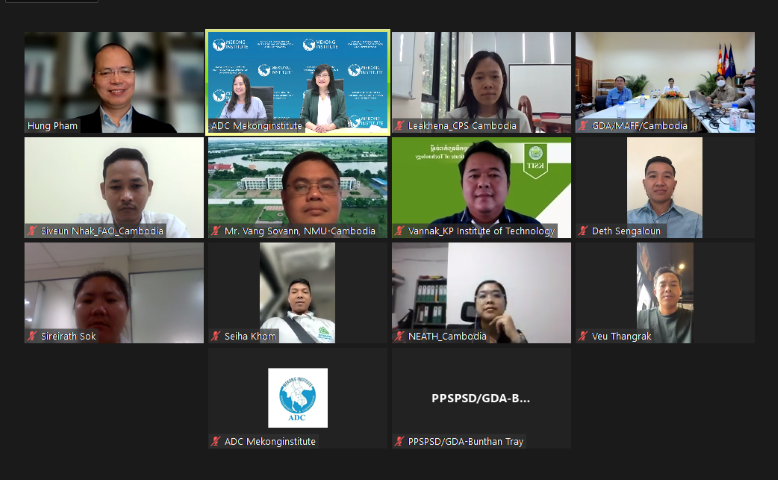With funding support from the Mekong-Republic of Korea Cooperation Fund (MKCF), Mekong Institute (MI) is pursuing a study on “Smart Technologies for Agricultural Supply Chain” in the Mekong countries.
The study revealed that Cambodia, Lao PDR, Myanmar, Thailand and Vietnam (CLMVT) are now advancing the use of smart technologies in agriculture, albeit at different levels of adoption. A wide range of smart technology options are available for farmers and agribusinesses in the Mekong region, ranging from low-cost and simple applications to medium and costly technological investments.
A series of online research validation and dissemination workshops was held on December 6 and 7, 2022 and was attended by almost 100 representatives from government agencies, academic institutes, development partners, and private sector firms in CLMVT.
Ms. Maria Theresa S. Medialdia, Director of the Agricultural Development and Commercialization (ADC) Department of MI, highlighted the importance of smart technology adoption in enhancing agricultural productivity to support smallholder farmers and boost the national economy of Mekong countries.
through the study, the opportunities and challenges encountered by producers and SMEs in the adoption of smart technologies were assessed, with special focus on the human and system capacity needs of government agencies and other stakeholders in supporting smallholder farmers towards the use of smart technologies in the production, processing and marketing of agricultural products
She explained that
The research workshops served as a platform to discuss the results, validate the main findings, and finalize the recommendations. The research findings further indicated that low-cost and simple applications being used in the region include social networks, and mobile applications for information and e-commerce; while medium-level technologies used include drones for fertilizer applications and sensors to collect information. There are also existing high-level technologies such as precision harvesters and learning machines for farming decisions.
While government agencies have already developed relevant strategies and policies to support agribusiness and farmers in the adoption of smart technologies in recent years, ground implementation is hindered by insufficient resource allocation, lack of transparency, and complicated paperwork required to access policy instruments. The private sector and non-government organizations are starting to engage in support provisions for smart agriculture but it is not a priority.
The key actors still have to work together in increasing proactive policy incentives for smart technologies investment, incubating startups, making the technologies inclusive to smallholder farmers, and promoting the private sector as its main driver.
The study was carried out as a part of the one-and-a-half-year project titled “Sustainable and Smart Agricultural Supply Chain Development in the Mekong Countries” that seeks to improve production effectiveness and efficiency, reduce postharvest losses, and increase energy efficiency of agricultural supply chains. The project aims to address the urgent need to transform agricultural supply chains in the Mekong countries through the application of smart agriculture, smart logistics, and renewable energy technologies.








